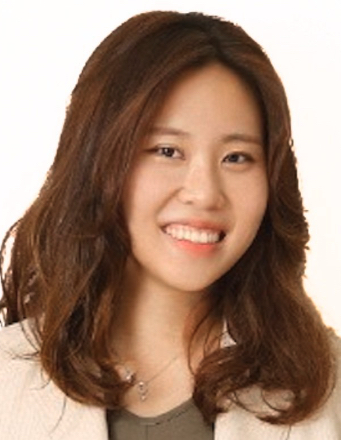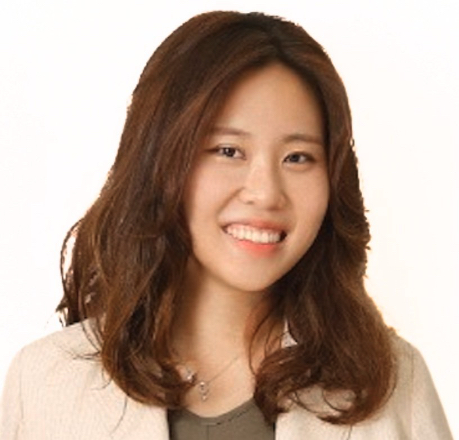First-year dental student engaged in the challenge of improving health equity issues6 min read
Ann Arbor, Mich., April 17, 2024 – Eunji Ko is only in her first year as a student at the University of Michigan School of Dentistry, but already she is investigating ways to make an impact on the important societal issue of health equity.
A project Ko created to address oral health disparities among low-income children in Michigan was earlier this year named one of 10 finalists in the Michigan Health Equity Challenge, a program being administered by the U-M School of Public Health. Finalists received $2,000 and training and mentoring support for implementing their projects.

Ko collaborated with a community-based program, Smiles On Wheels, in Jackson, Michigan, to determine how she could contribute to its mission of improving oral healthcare of children across the state. The non-profit is a mobile hygiene program, operating under the state’s Public Act 161, that sends Registered Dental Hygienists into schools to treat children in grades K-12. Working in partnership with the Michigan Department of Health and Human Services, the program provides dental cleanings, dental assessments, fluoride treatments, dental sealants and oral health education. It has served more than 30,000 children at 150 schools across Michigan, including about 50 in the Upper Peninsula. It also has a clinic in Jackson.
Ko investigated how to improve communication and education about the importance of good oral healthcare among providers like Smiles On Wheels, schools and parents. “Through community-level engagement and educational presentations at school events, the initiative aims to instill a shared understanding of oral health’s significance, fostering collaborative solutions and promoting behavioral changes,” Ko’s proposal stated.
Among the ideas she is exploring is developing a report card of sorts that Smiles On Wheels hygienists could provide to parents for their children’s oral health status. It would relay the condition of the child’s teeth and point parents toward dental providers if the child has extensive or specialized treatment needs beyond what the mobile hygienists can provide. To enhance the written aspects of the report card, Ko hoped the grant could pay for an intra-oral camera so that photographs of the child’s teeth could be attached to the report card as a way to reinforce the importance of good oral healthcare for the child.
“A lot of the parents don’t recognize how important oral health is,” Ko said. “Part of it is because they have so much on their plate to worry about. And often they themselves don’t receive dental care. It’s a cycle: If the parents don’t receive it, the children don’t receive it. So the idea is: OK, we need something that can show them, a visual factor, about the child’s teeth. Then put instructions for how the children could receive additional care. We’re just trying to make communication and education more efficient.”
Ko said the timing of her project is good because starting with the 2023-24 school year, the state of Michigan has mandated that all children enrolling into their first year of school are required to have an oral health assessment. That’s an important, progressive step in the important need of improving childhood oral health, but there needs to be more, Ko said. “What they don’t have is: What are you going to do after that initial assessment? There is no post-assessment plan. My main thing is you are just leaving the students to be statistics. OK, there is a 50 percent cavity rate. What now? There is no solution. There are some programs in schools that do dental sealants, but most programs can’t do restorative work. So that’s where my project started. We need to find something to connect children to appropriate care.”
A native of South Korea, Ko earned her undergraduate degree at Tufts University in Medford, Massachusetts, before being admitted to the U-M School of Dentistry. Her interest in health equity started when she returned to South Korea during the Covid-19 pandemic and was shadowing a dentist as part of her pre-dental school preparation. On one day a week, the dentist would go to schools to treat students with special needs. It was always a very busy day packed with patients. Then the rest of the week, at the dentist office, Ko noticed there were no under-served or special-needs patients. “I was like: That doesn’t make sense, because I see so many dental needs out there. There is a wall dividing those patients from the dental care they need and we need to get rid of that. There are clearly health disparity issues within dental care, so that’s what I want to do.”
Ko said she is grateful that dental school faculty member Dr. Margherita Fontana agreed to serve as her mentor for the Michigan Health Equity Challenge. Fontana is an internationally recognized clinical researcher in childhood caries and has completed numerous research projects investigating how dentists and the greater society can improve its approach to the problem. Fontana linked Ko with Smiles On Wheels.
“Because we are working with a community-based organization, I think this is a huge plus for this project,” Ko said of Smiles On Wheels. “Because community-based organizations know what they are doing. They’ve been in the field for so long. Smiles On Wheels has a very good rapport with the communities and schools they work in, especially in the Jackson area where they are based.”
Ko said she plans to continue developing her ideas for Smiles On Wheels despite learning last week that her project was not chosen for one of two $50,000 grants from among the 10 finalists. The $50,000 grants are used to help the two winning projects implement their plans.
Ko said Smiles On Wheels was aware the larger funding might not be awarded. “I told them if I don’t get this grant, I’m going to find another grant to apply to,” she said. “While I am naturally disappointed, I remain committed to the goals of our proposal and will be on the lookout for similar projects that provide grants in the future. I’ll be a second-year student next year. I will apply for other grants. This is something I will stick to.”
The Michigan Health Equity Challenge was established through a $100,000 grant from the MolinaCares Accord and Molina Healthcare of Michigan. It was provided to the U-M School of Public Health in the fall of 2023 and the school’s Griffith Leadership Center is hosting and managing the program.
Molina Healthcare, Inc. is a managed care company based in Long Beach, California. It provides health insurance to individuals through government programs such as Medicaid and Medicare. Its related MolinaCares Accord is a community investment program created to improve the health and well-being of disadvantaged populations by funding innovative programs that improve health in local communities.
###
The University of Michigan School of Dentistry is one of the nation’s leading dental schools engaged in oral healthcare education, research, patient care and community service. General dental care clinics and specialty clinics providing advanced treatment enable the school to offer dental services and programs to patients throughout Michigan. Classroom and clinic instruction prepare future dentists, dental specialists and dental hygienists for practice in private offices, hospitals, academia and public agencies. Research seeks to discover and apply new knowledge that can help patients worldwide. For more information about the School of Dentistry, visit us on the Web at: www.dent.umich.edu. Contact: Lynn Monson, associate director of communications, at [email protected], or (734) 615-1971.


